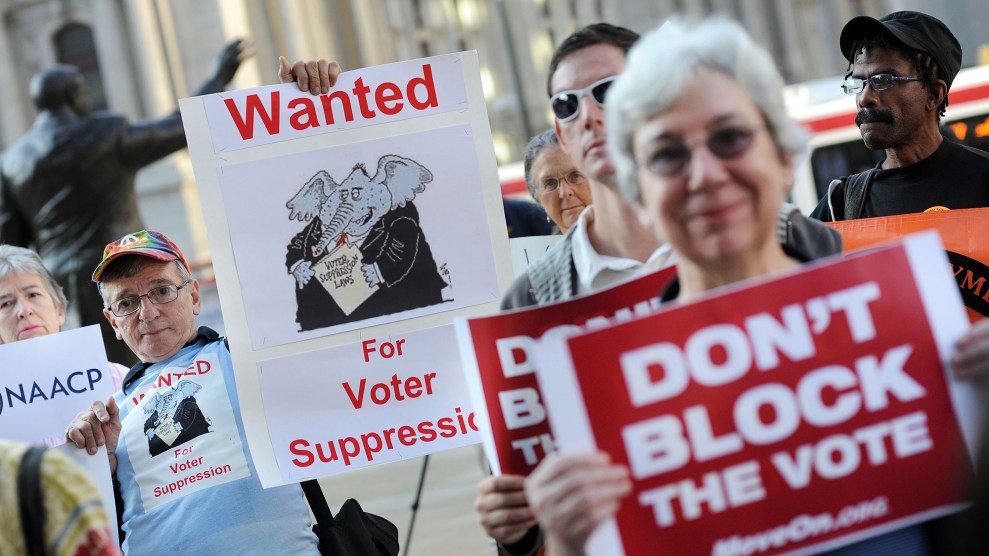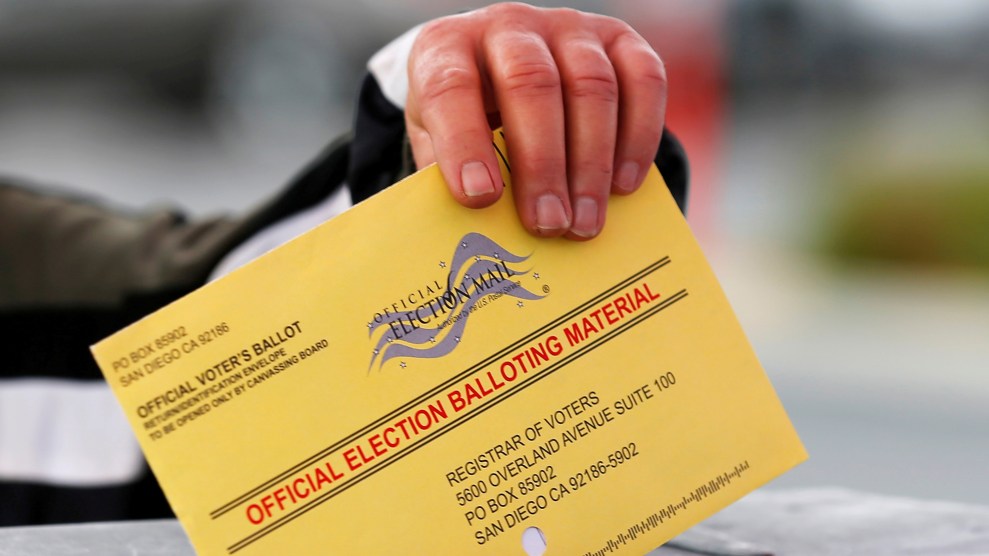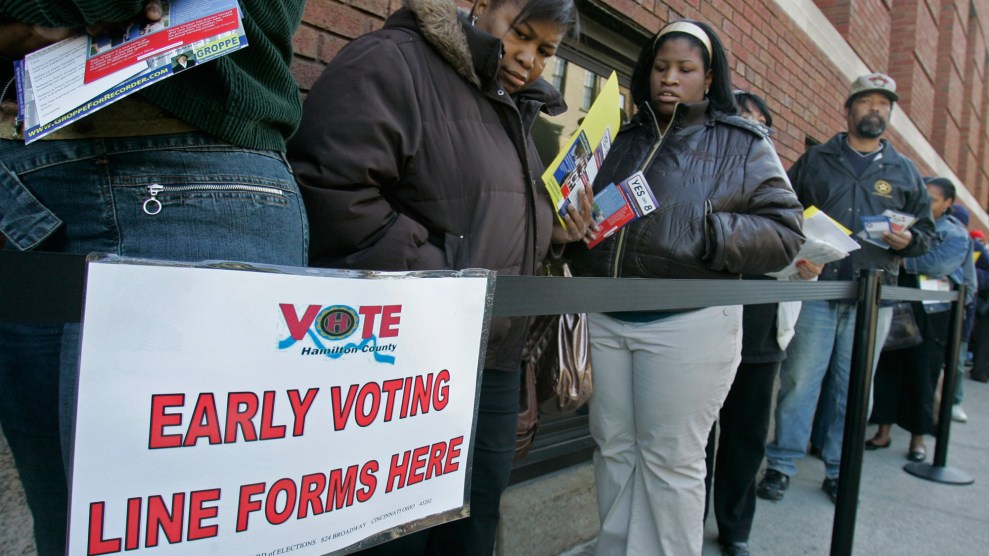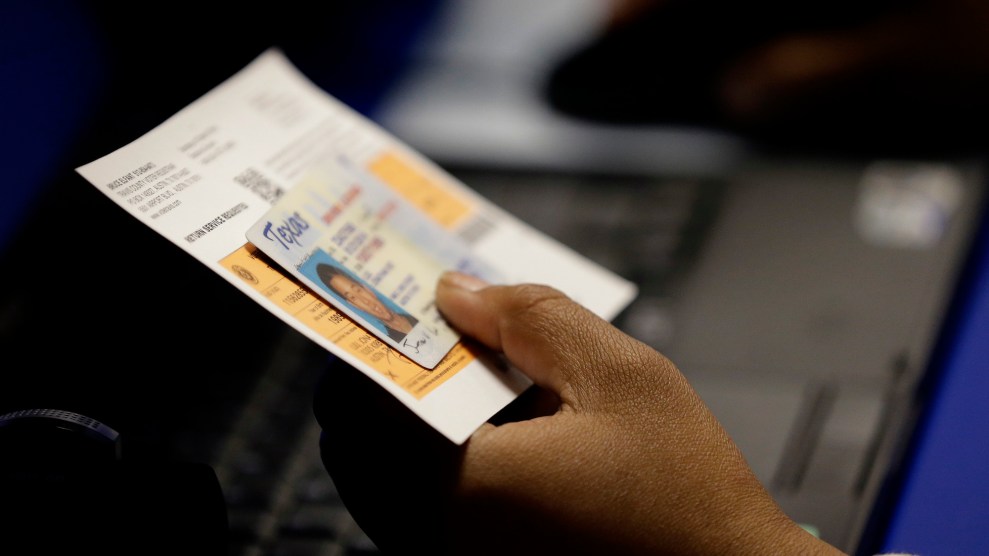
William Thomas Cain/Zuma
Election history will be made in less than five weeks, and not just because voters may choose the nation’s first female president. This will be the first presidential election in 50 years where citizens will cast their ballots without the protections of key portions of the Voting Rights Act. Signed into law in August 1965, the law was designed to help racial minorities overcome decades of racism and discrimination in registering to vote and casting ballots.
The law sought to do a whole host of things to expand and protect voting rights, and chief among them was a provision that blocked jurisdictions with a history of discrimination from enacting new voting procedures or laws without the review of the US Department of Justice or a federal judge. Section 5 put the onus on states and jurisdictions to prove new voting procedures and laws weren’t discriminatory before they were enacted, rather than forcing people who suffered discrimination to prove a change was discriminatory after it went into effect, which was only possible after at least one election had already been held.
But in 2013 the US Supreme Court, in Shelby County v. Holder, gutted Section 5, ruling that the formula used to determine which states and jurisdictions needed to get laws precleared was unconstitutional. In the wake of that decision, Republican legislatures in several states quickly moved to implement more strict voting laws that likely wouldn’t have passed a Department of Justice review. For example, Alabama and Mississippi made it harder for those in rural small towns to get proper IDs. Filmmakers Kelly Duane de la Vega and Jessica Anthony explored the scope of this problem in Supreme Court v. the American Voter, a short documentary published last week by the New York Times. The film looks at the controversial 2013 Supreme Court decision that gutted the Voting Rights Act of 1965, and its potential impact on voters of color in the upcoming presidential election.
They show the immediate effects of the 2013 Supreme Court decision: Texas moved to enact a strict voter ID law and North Carolina implemented a sweeping set of restrictions that added stringent new ID laws, removed same-day registration, killed early voting, and added other changes that “target [African Americans] with almost surgical precision,” according to a recent 4th Circuit Court of Appeals ruling that blocked some of the provisions in the law.
And while several federal courts have issued rulings peeling back some of the rulings post-Shelby, voters in 16 states will have navigated new laws related to voter registration and the act of voting for the 2016 election.
“Every time you attack and suppress the vote, that’s violence,” the Reverend William Barber, head of the North Carolina NAACP and a leader of the Moral Mondays movement for voter outreach, says in the film. “That’s social violence. That’s psychological violence. That’s political violence. And it’s time to stop the violence.”













